Most of us know what the W30 is.
The Whole 30 is a program where you eliminate gluten, dairy, soy, corn, peanuts, sugar and processed foods and eat very clean paleo for thirty days. The idea is to get back to eating real food. They say no to pancakes, smoothies, protein powders, pizza or anything that they call food that are like having " sex with your pants on". SWYPO is the biggest push back I get in my Paleo Vegeo group because people don't agree with using any supplementation. However most of us that are eating in a paleo vegan or vegetarian manner have to address the large elephant in the room, which is we need supplementation. People always say they can't do the whole 30 as a vegetarian or as a vegan... and I've one it... and this is the whole 30 list for vegan/vegetarian with my allergies all crossed off. So no excuses.
People always say they can't do the whole 30 as a vegetarian or as a vegan... and I've one it... and this is the whole 30 list for vegan/vegetarian with my allergies all crossed off. So no excuses.Here is a look at the recommendations for supplementation for vegans by the Vegan RD.
All vegans:Vitamin B12. You can’t get enough by eating unwashed organic produce or mushrooms grown in B12-rich soil. The recommended dose is 25 to 100 micrograms per day or 1,000 micrograms 2-3 times per week. If you have not been taking B12 for a while, start out with 2,000 micrograms daily for several weeks. Or get a blood test to see where you are and whether you might need a more therapeutic dose.
Most vegans:Vitamin D. If you live where it’s sunny and warm all year and you spend time outdoors without sunscreen, you can make enough. The rest of us need a supplement or fortified foods (just like omnivores do) supplying 1,000 I.U.s of vitamin D. (This amount is well above the RDA for vitamin D but most experts think it’s warranted. {I was taking 10,000 units at one time, and now take 5,000 because we just don't get the natural vitamin D here in the Seattle area}SO what about my own Paleo Vegeo supplementation?
Iodine. Omnivores get most of their iodine from dairy products, which pick up iodine from solutions used to clean cows and equipment on dairy farms. Vegans who regularly eat sea vegetables may get enough, but the content varies a lot as it does for sea salt and other “natural” salts. {Yesterday in my group I shared some information on the toxins in some packaged sea vegetables} Miso, which some vegans prefer to use in place of salt—because it’s a whole food—is not usually a good source of iodine. The only reliable sources are iodized salt or a supplement providing around 90 micrograms per day.
Some vegans:Calcium. We don’t know if vegans have lower needs, but the old “low protein diets reduce calcium needs” theory has taken some real hits in the past years. Based on current understanding–which is admittedly pretty poor–we vegans should strive for the RDA. Our ancestors didn’t drink milk and got all the calcium they needed from wild greens. And even though modern cultivated greens have less, we could get enough calcium just from these foods, too. But the recommendation to eat four or more cups of cooked greens per day makes veganism a hard sell. Without fortified foods, many vegans fall short on calcium. (So do most omnivores; the food industry doesn’t fortify orange juice or instant oatmeal with calcium as a favor to vegans. Those foods are marketed to omnivore women.)
Iron. Young women with heavy periods may have a tough time keeping up with iron needs, and again, this is not a problem that is specific to vegans. Rates of iron deficiency anemia are actually very high among pre-menopausal omnivore women. It can help to take a low dose supplement (high doses can be hard on the stomach) with orange juice to boost absorption, or to include some fortified foods in the diet. There is some evidence that taking supplements of the amino acid L-lysine boosts absorption of supplemental iron.
Possible supplement requirementsDHA: 200 to 300 mg several times a week. It may be a good idea, but we don’t know for sure. I take this amount almost daily and would recommend it in particular for anyone who is prone to depression.
Sound like a lot of supplements? Well, here is some perspective: Omnivores get their vitamin D from fortified foods (cow’s milk is not a natural source of this nutrient) and their iodine from accidental contamination of dairy foods. Many omnivores—women especially—depend on supplements to meet calcium and iron needs. And the Institute of Medicine recommends that everyone over the age of 50 should add vitamin B12 supplements or fortified foods to their diet since it becomes increasingly difficult to digest and absorb the vitamin B12 in animal foods with aging.
I take a whole foods supplement (6 capsules daily, and 2 daily for my daughter) for my A, C, E and Folate. I also supplement with Vitamin D, Iron, Magnesium, Calcium, DHA, Kelp, Methylated B12 and Probiotics (both supplemental and in food). So ... do you supplement or do you think you get enough in your food?
You know that I have to add the little disclaimer on the website, but I am certified in personal nutrition, and am now working on my advanced degree. So I have seen the way that nutrition impacts us, and our children. Women's nutrition is one of the most important areas that I see lacking, especially because either women don't take any supplementation until they are pregnant, can't stomach the synthetics, or eat primarily poor quality foods before, during and after pregnancy. Or they suffer from fertility issues that are often complicated from the chemicals they use in their home, and the ones they are eating.
Then we take these babes and we give them a non-nutritional formula, or packaged, gmo foods. Did you know that babies to 3 years are best left to good complex carbohydrates and not starchy pastas? Yet it's there in the "entry to food" prepacked items.
Nutrition should start early with real whole foods after six months of nursing minimum, and for most of us supplemented as needed, and for even my family it's needed.
Let's compare the T30 and the W30
Now what about the comparison to the T30. The Transform 30 is eliminates gluten, dairy, meat, processed foods. It has you drinking 3 liters of water daily, getting eight hours of sleep, drinking two shakes per day, and eating real whole vegan foods for your other meals as well as supplementing with their whole foods capsules. The shake is not aligned to those that are focused in on the paleo vision of non-soy. However, the Whole 30 allows for the right type of soy for vegans. Did you know that? And the T30 shake is an organic, non-gmo cold washed soy and tofu protein with other proteins as well. It also has chickpea, pea and rice proteins (rice is making a paleo comeback due to it's resistant starch and probiotic nature) a sprout blend and pumpkin, pomegranate, spirulina, mushroom extract and digestive enzymes. For a lot of people dealing with PCOS issues we are told to move to paleo. Meat is often a bodybuilder staple to raise the testosterone levels, so I think that diving into all meat isn't always going to be the PCOS answer. That being said, if you struggle with fertility, the capsules are going to be exactly what you need, but the shake maybe not. It will balance out those insulin spikes, but it won't increase fertility. You may also want to look at the 22 Days protein shakes, although it is just protein and you still need to add to it for a meal replacement shake. It's all something to think about, right?How have I done with the T30?
Well this has been life changing for my family... and I would love to share it with you! In 30 days, my husband has been able to see great changes. I can't wait to share his next 30 days.Of course real food-based nutrition in a vitamin format has been really helpful for me. I think with the methylation issues I have, I really wasn't getting the nutrients I needed. I call it the farmer's market in a capsule! Unlike common multivitamins that you've heard me talk about and that only deliver fillers, chemicals and less than active nutrients, these deliver actual food-based nutrients that are organic and pure, making them impressively bioavailable and easy to digest. They're all completely non-GMO, gluten-free, soy-free, dairy-free, low heavy metals verified and completely free of pesticides and herbicides. All food should be made this way! Labels and ALL!!
Before I go on, let me be clear about something. The best source of nutrition is the real, organic, fresh foods that you buy at your local market or farm. No supplement, no matter how amazing, can replace real, fresh foods and superfoods that you grow in your own garden or aquaponic system. So we do get a lot of fresh foods, and the shakes and capsules are a good support tool.
In 120 days I have seen big strides in my own progress as well. And after the last 24 months I really wasn't sure I was every going to see any changes... but thankfully I am on the journey back to where my body is at it's healthiest. So the question is, what is stopping you from deciding you are ready to change?



.png)





















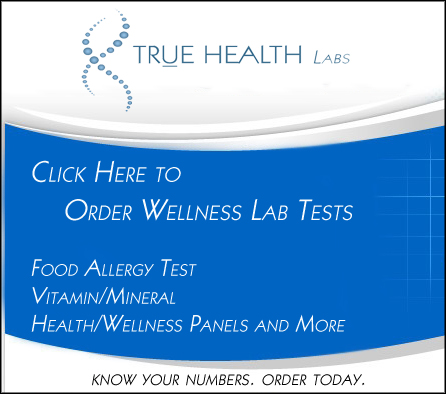






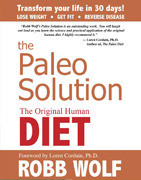
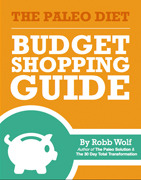
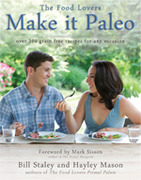
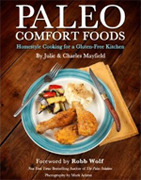


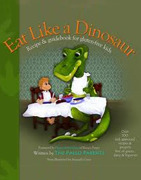
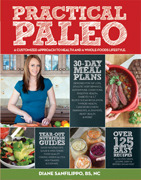
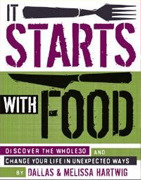
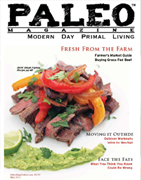
0 comments:
Post a Comment